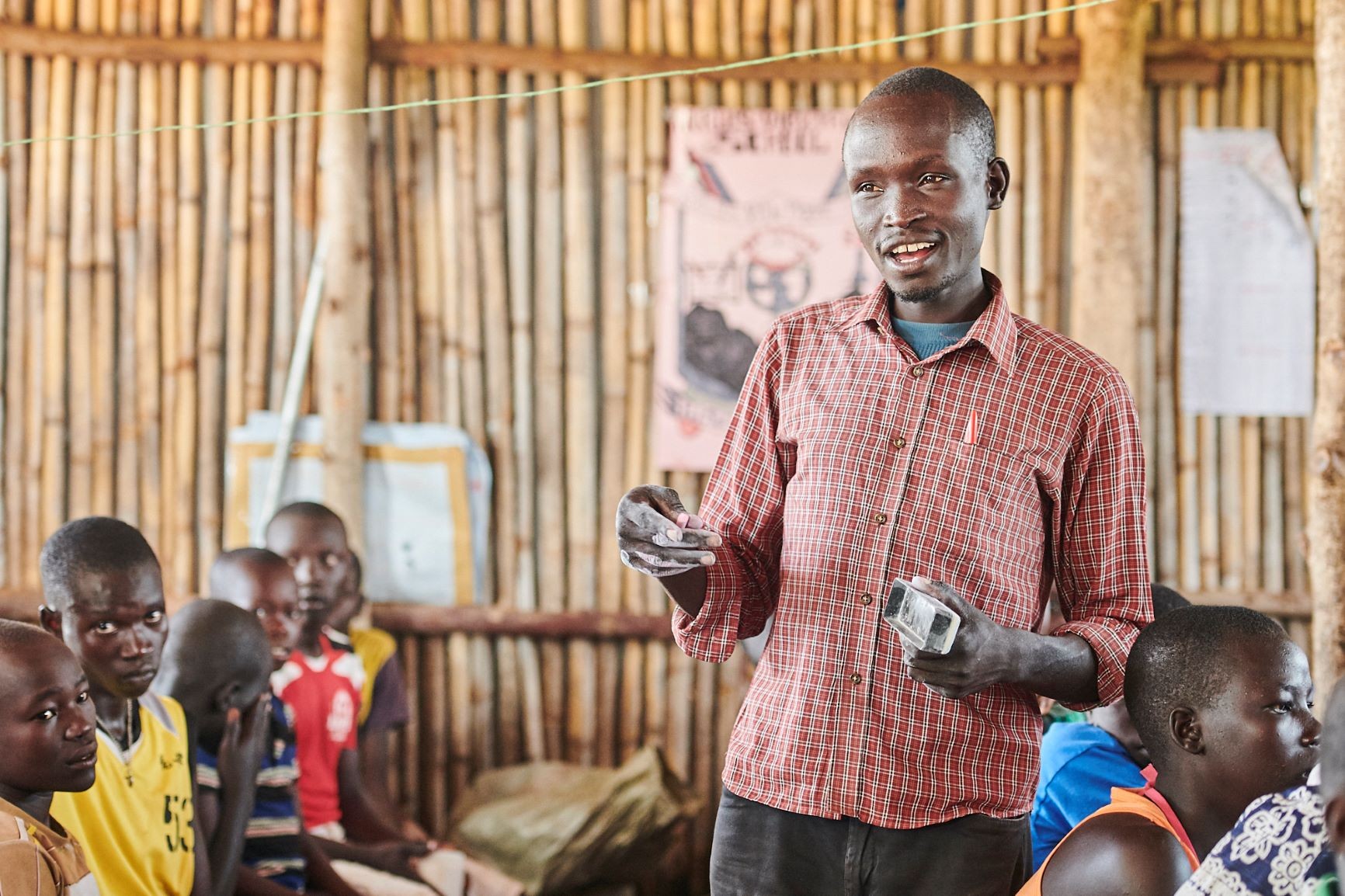Preamble: Large numbers of South Sudanese and Ugandans have repeatedly crossed the shared border to escape civil wars. The number of South Sudanese refugees in Uganda has exceeded One million, and around one-third of the people of S. Sudan have been uprooted from their homes by conflict affecting their country. These forced movements of large populations generally create tremendous social and economic pressures for the displaced/refugee and host populations. The children and youth risk missing out on any education if the formal education system is not supported and strengthened.
Thus, 'Building Resilient Education Opportunities in Fragile and Crisis Affected Environments’ project (BRICE), was established. The project, through the support of the European Commission-International Cooperation and Development is christened 'Education for All.' The objective of the project is to contribute to improved access and completion of safe quality education for learners and teachers in fragile and crisis-affected environments, as well as improved resilience of the education systems as well. The project area in N.Uganda is the Lamwo District, particularly in the Palabek settlement and the greater Juba Area in South Sudan.
The four year project which kicked off on February 2018, is led by the coordinating partner Oxfam IBIS, and implemented by; Oxfam Uganda, South Sudan and its Regional Office-Nairobi, Columbia Global Centers|Nairobi /Columbia University’s – Teachers College, Education International (EI), Uganda National Association of Teacher’s Union (UNATU), Forum of Women Educationalist-Uganda (FAWEU), AVSI-Uganda and South Sudan and Luigi Giussani Institute and the Inter-Agency Network for Education in Emergencies (INEE).
Prof. Mary Mendenhall, Associate Professor of Practice & Program Director, International and Comparative Education Programs Teachers College, Columbia University, lead on the research component, seeks to understand better how teachers and learners conceptualize their well-being. Similarly, the research team that includes Danni Falk , Daniel Shephard, Xinyi Ge and Jihae Cha, from Teachers College seeks to further investigate the project's contribution to the accelerated education (AE) and teacher and educator professional development (TEPD) on the well-being of South Sudanese learners and their teachers in Uganda and S. Sudan. In addition, the research component will seek to explore how teachers and learners contribute to one another's well-being and how the teacher and learner well-being influence the community influences and.
In February/March 2019 and later June/July 2019 conducted exploratory research and data collection exercises in the Palabek Settlement –N. Uganda and Juba S. Sudan guided by the research objective. In the well-being and resilience, four central components guide the team; social connectedness, resilience, self-efficacy and anxiety, and stress.
The multi-year study preliminary findings indicate further emerging themes which include:
- Economic challenges experienced by both teachers and learners to sometimes meet even their basic needs.
- Despite increased security over the last two years, pockets of violence within the schools and theft and vandalism within the community plays on their well-being.
- The need for more psychosocial support and protection for both teachers and learners.
- Female from the Accelerated Learning Program-ALP (which aims at consolidating learning for individuals who are too old for formal primary classes but who have missed all or part of their formal primary education) have distinct challenges. Due to economic challenges, some of the female students have dropped out and resulted in early marriages, domestic chores, and menstrual hygiene.
- Despite the challenges, both learners and teachers identified education/learning institutions provides hope for the future.
- Local communities and the church served as an important source of a sense of community, support, and hope to both some teachers and learners.
“Meeting with the teachers and the youth was equal parts heartbreaking and inspiring. The commitment to education and the role they see education playing in their lives is significant, though not without its challenges. One young man that we met from South Sudan had already completed primary education successfully in South Sudan, but since he had to flee without his papers, he is starting again in the Accelerated Education Programme. He appeared determined to persevere,” Prof. Mary Mendenhall says.
The research team continues to work with consortium partners to ensure the preliminary findings are incorporated into the current work plans. Some of the current recommendations include:
- Strengthen and streamline school-level data – to establish and maintain standardized school-level data systems.
- Provide additional teacher professional development support to effectively teach and manage their classrooms and provide more psychosocial support to their learners.
- Provide enhanced Psychosocial Support (PSS) to teachers and learners and introduce more PSS activities within the schools e.g. sports, drama, and dance.
